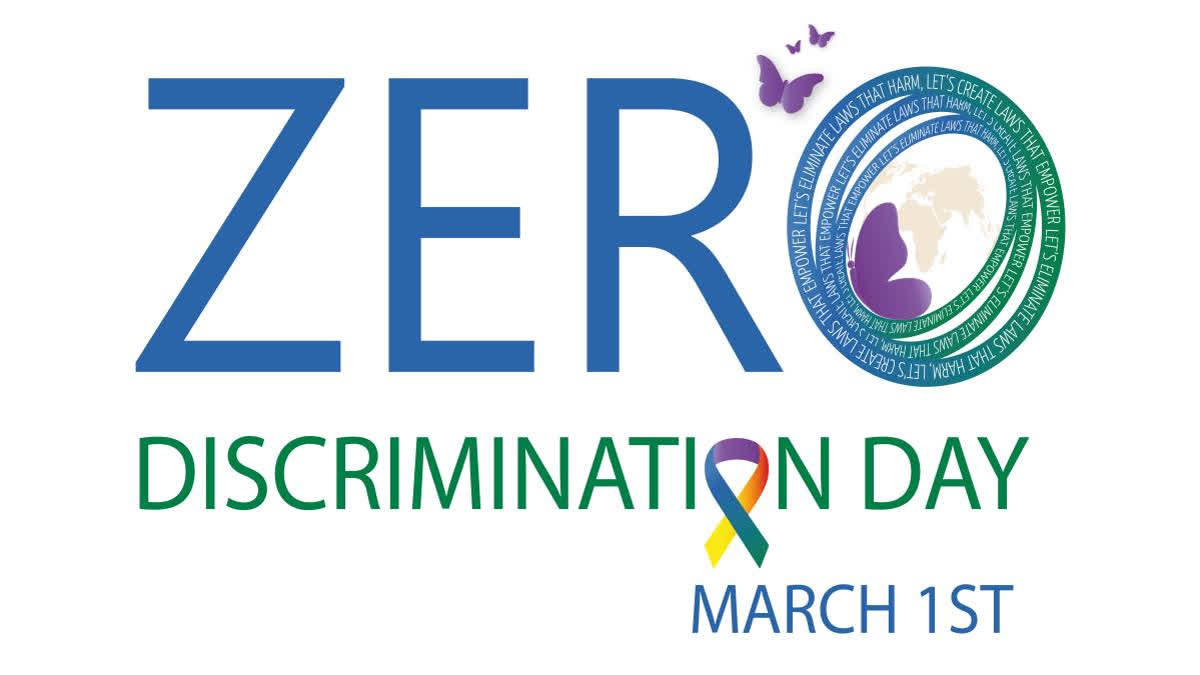Hyderabad: Zero Discrimination Day is celebrated annually on March 1. It is a day originally initiated by UNAIDS to combat discrimination, particularly against those affected by HIV. This global event has expanded its focus to address all forms of discrimination impacting health, well-being, and overall quality of life. This year marks the tenth anniversary of the day.
About Zero Discrimination Day: The United Nations first observed Zero Discrimination Day on March 1, 2014, following the launch of UNAIDS' Zero Discrimination Campaign in December 2013. The symbol for this day is a butterfly, widely embraced to share stories and photos, fostering a collective effort to end discrimination and promote positive transformation.
Zero Discrimination Day 2024 Theme: The theme for 2024 is 'To Protect Everyone’s Health, Protect Everyone’s Rights,' emphasising the crucial need to safeguard both health and rights, with a specific focus on ending AIDS-related discrimination.
Understanding Discrimination: Discrimination involves biased or unjust treatment based on characteristics such as race, gender, age, or sexual orientation. Stigma and discrimination towards individuals living with HIV persist, often manifesting within families, communities, and even healthcare settings.
Effects of Discrimination on Common People: Discrimination at the workplace can negatively impact mental health, potentially leading to talent attrition. This mistreatment can be debilitating, creating isolation within the organisation. Inclusion, vital for organisational success, promotes creativity, innovation, and connects with a broader customer base.
Discrimination and Mental Health Issues in Young Adults: Studies indicate that discrimination increases the risk of mental health problems in young adults. Those facing discrimination have a higher likelihood of being diagnosed with mental disorders and experiencing severe psychological distress.
UNAIDS Zero Discrimination Day 2024: As the world progresses toward ending AIDS by 2030, the focus on human rights becomes paramount. Laws, policies, and practices that discriminate against various groups obstruct access to HIV prevention, testing, treatment, and care. The theme underscores the urgency of removing harmful laws and upholding the rights of every individual.
Discrimination Against People Living with HIV/AIDS in India: In India, discrimination against women with HIV includes denial of shelter, property rights, access to treatment, and even blaming them for their husband's HIV diagnosis. However, the Human Immunodeficiency Virus (HIV) and Acquired Immune Deficiency Syndrome - AIDS (Prevention and Control) Bill, 2017, has been a crucial step to ensure equal rights and prevent discrimination.
Promoting Zero Discrimination Day: Organisations can contribute by updating their equality, diversity, and inclusion policies, celebrating awareness days, ensuring efficient recruitment processes, providing comprehensive training, and taking reports of discrimination seriously.




